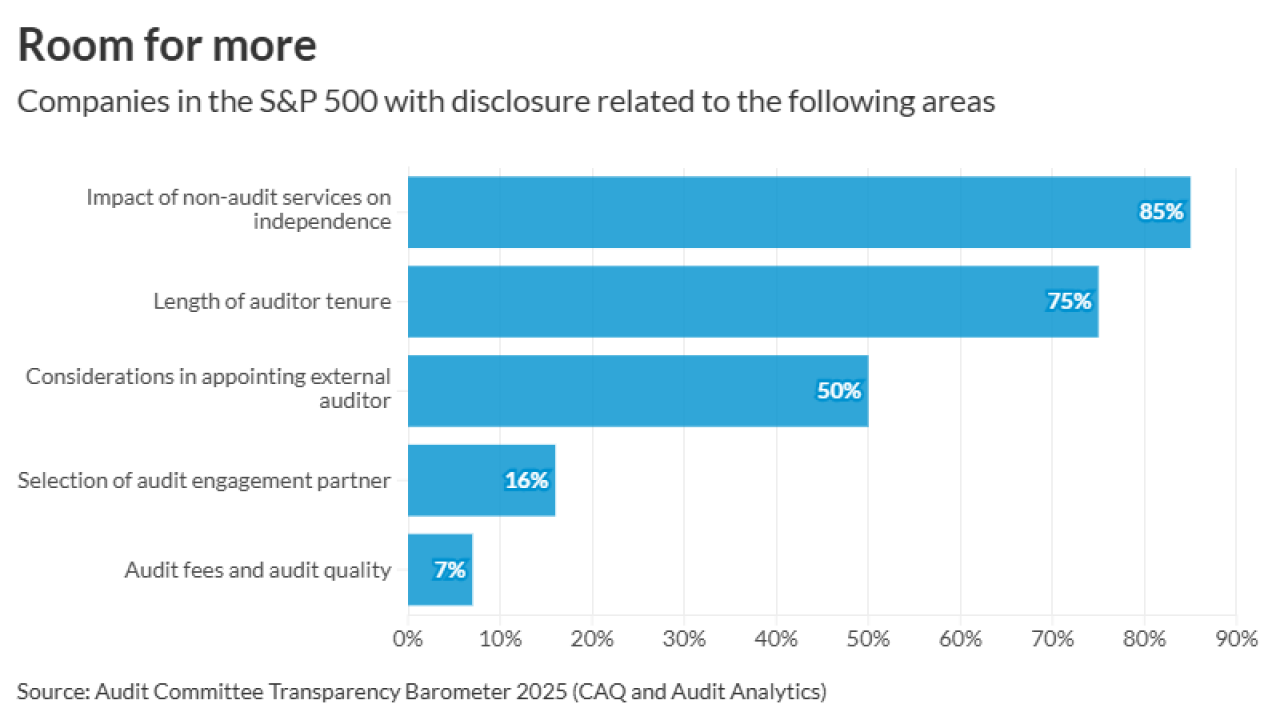While generative AI — artificial intelligence which leverages data to produce novel content — has only been mainstream for a short time, a recent poll of finance leaders found the majority of organizations now use it in at least some of their financial reporting process.
The
The main benefit of AI, according to those polled, is increased efficiency that will free up staff for other, more strategic goals. Following closely behind is "increased data accuracy, reliability and predictability," "increased visibility into end-to-end processes and controls" and, finally, "increased ability to identify data outliers and anomalies." However there does not seem to be much confidence that AI can address staffing shortages or control costs, as those two were at the very bottom of the list of potential benefits.
Many, but not all, are eager to work generative AI into their financial reporting process. While enthusiasts had the plurality, they did not carry the majority. The poll found 47% believe that generative AI will "live up to the hype" compared to 37% who disagreed and 15% who were neutral. Part of this could be because there remain many concerns about both generative AI and AI overall.
For AI overall, the chief concern was the program acting on wrong information or faulty assumptions, with 18% saying they were extremely concerned about this and 17% saying they were very concerned. Other concerns included data privacy and model transparency. For generative AI, meanwhile, the biggest source of anxiety — with the highest proportion saying they were extremely concerned, 17%, was copyright and IP issues connected to AI-produced work. However, concerns over model transparency, data privacy, accuracy and cybersecurity were also prominent.
These concerns might be why the poll also showed that many finance leaders don't want to become too dependent on AI. The biggest barrier to implementing AI in the financial reporting process, at 51%, was "risks associated with overreliance on algorithms." They also cited concerns about the pace of regulation, concerns about data quality, and difficulty integrating AI with existing tools.
This might also be why poll respondents definitely see a role for auditors in the future. A comfortable majority, 65%, want auditors to help evaluate a company's use of AI; and a little more than half, 51%, said that third-party attestation about AI usage will be valuable in the future. There also seems to be a lot of confidence that auditors are already proficient with AI: 72% think auditors are ahead of the game when it comes to using AI.
"Financial reporting leaders, but also investors, regulators and other stakeholders in the capital markets expect AI to drive audit quality," said Scott Flynn, KPMG vice chair of audit. "They also expect auditors to understand and evaluate processes and controls, analyze transaction-level data for anomalies, and test more data in real-time. Considering both the scope and scale of AI's impact on financial reporting, enhancing audit quality by using technology to stay ahead of emerging risks is expected."





